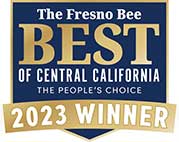- HS-005
- Medical Terminology
- Credit(s) 3
Medical Terminology
HS 005 emphasizes etymology of disease terms, nomenclature of medical and surgical
procedures, use of prefixes, roots, combining forms and plurality of medical terms
and commn medical abbreviations.
- Class Hours:
- 54 Lecture
- Advisory(s):
- ENG 051A
- Transfers to:
- CSU
- C-ID:
- HIT 103X
- HS-015X
- Occupational Work Experience
- Credit(s) 1 - 8
Occupational Work Experience
Cooperative Work Experience Education (CWEE) develops skills and knowledge by integrating
classroom study with planned, supervised work experience. It is based on the principle
that well-educated individuals develop most effectively through an educational plan
that incorporates work experience. Through these structured experiences, the students
enrich their college studies, which enhance their total development. Occupational
Work Experience is supervised employment which is intended to assist students in acquiring
desirable work habits, attitudes, and career awareness in the field of the student's
major. Students may earn up to 8 units per semester for a maximum of 16 total units.
Credits are awarded for paid or voluntary work. For every 75 hours of paid work
completed within the semester, 1 unit of credit is awarded. For every 60 hours of
volunteer work completed within the semester, 1 unit of credit is awarded. Occupational
Work Experience credits are counted as electives toward an Associate's Degree at West
Hills College Coalinga and are transferable to four year universities (for specific
transfer eligibility, please contact a counselor or an advisor).
- Class Hours:
- Work Experience
- Transfers to:
- CSU
- HS-040
- Introduction to Public Health
- Credit(s) 3
Introduction to Public Health
HS040 will provide an introduction to the discipline of Public Health. Students will
gain an understanding of the basic concepts and terminologies of public health, and
the history and accomplishments of public health officials and agencies. An overview
of the functions of various public health professions and institutions, and an in-depth
examination for the core public heath disciplines are covered. Topics of the discipline
include the epidemiology of infectious and chronic disease; prevention and control
of diseases in the community including the analysis of the social determinants of
health and strategies for eliminating disease, illness and health disparities among
various populations; community organizing and health promotion programming; environmental
health and safety; global health; healthcare policy and management.
- Class Hours:
- 54 Lecture
- Advisory(s):
- ENG 051A
- Transfers to:
- UC/CSU
- C-ID:
- PHS 101
- HS-045
- Drugs, Health, and Society
- Credit(s) 3
Drugs, Health, and Society
HS 045 provides an overview of the epidemiology and toxicology of substance abuse
and its relevance to personal and public health. Students will be introduced to the
concept of substance abuse and dependence, the definition of licit and illicit drugs,
and the pharmacologic, neurological and physiologic effects of selected substances
on the human brain. Political, social and economic factors involved in the supply
and demand for drugs will be discussed. Epidemiological data on the prevalence, incidence,
and trends of smoking, alcohol, prescription and other drug dependencies in the U.S.
will be covered, as well as risk factors associated with the use and abuse of these
substances. Current options for recovery and a survey of local resources will be reviewed.
- Class Hours:
- 54 Lecture
- Advisory(s):
- ENG 051A and HE 035
- Transfers to:
- UC/CSU
- C-ID:
- PHS 103
- HS-061
- Nurse Assistant Training
- Credit(s) 6
Nurse Assistant Training
HS 061 is a nine-week course approved by the Department of Health Services. A combination
of theory, skills laboratory, and in-hospital training prepares the student for the
certification examination that grants the title of CNA in California.
- Class Hours:
- 63 Lecture | 135 Laboratory
- Advisory(s):
- Students must be at least 17 year of age and pass a physical examination, and submit fingerprints for FBI and DOJ clearance (Recommended, Previous or concurrent).
- HS-080
- Intro to Medical Professional
- Credit(s) 2
Introduction to Medical Professional
HS 080 will present prospective health care professionals with industry related principles
and expectations for participation as a functional member of the interdisciplinary
health care team.
- Class Hours:
- 36 Lecture
- P/NP
- HS-088
- Medical Terminology for Health
- Credit(s) 2
Medical Terminology for Health Careers
HS 088 will present prospective health care professionals with industry related language,
abbreviations, and terminology. Students will learn to build common medical terms
by using prefixes, suffixes, roots and stems. Students will apply medical terminology
in written and verbal communication activities.
- Class Hours:
- 36 Lecture
